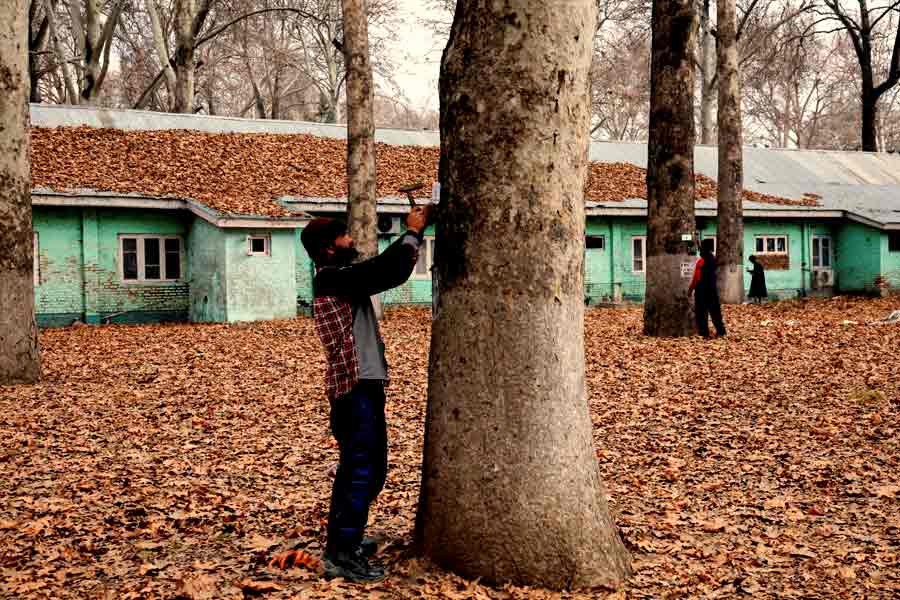 Wednesday, 22 January 2025
Wednesday, 22 January 2025
 Wednesday, 22 January 2025
Wednesday, 22 January 2025
The Narendra Modi-led Union Cabinet’s approval of the One Nation, One Election (ONOE) Bill has sparked controversy across India’s political spectrum. Described by the BJP as a revolutionary step towards streamlining governance and boosting development, the proposal has been fiercely opposed by Opposition parties, which argue it undermines federalism and concentrates power in the hands of the centre.
The Bill aims to synchronise elections for the Lok Sabha, state assemblies, and local bodies and is expected to be tabled in the Parliament during the ongoing winter session.
While the BJP and its allies are pushing the idea as a significant reform, the Congress and other regional parties, have branded it as “anti-democratic” and a threat to India's diverse political fabric.
Supporters laud efficiency
BJP ally Chirag Paswan was quick to hail the initiative as being in the “national interest,” emphasising its potential to minimise the disruptions caused by frequent elections. “It (simultaneous election) is in the interest of the country. It will boost development,” Paswan stated.
Assam chief minister Himanta Biswa Sarma endorsed the Bill, highlighting the logistical and financial efficiencies it promises. “Like simultaneous elections were held in Odisha…When assembly and Lok Sabha elections are not held together, development work stops,” Sarma argued.
BJP MP Kangana Ranaut added her voice to the chorus of approval, asserting, “There is a wave of enthusiasm across the country for 'One Nation, One Election.' This should have happened earlier, and it’s being done under Prime Minister Modi's leadership.”
Haryana CM Nayab Singh Saini also backed the move, citing cost savings and developmental benefits. “Earlier, the money was misused in the elections. It used to restrict the pace of development too...I welcome this decision. It will save the burden on the exchequer,” he said.
Opposition unites against 'authoritarian' move
Congress President Mallikarjun Kharge had already articulated his party’s strong disapproval in January 2024, describing the concept as “anti-democratic.” The party's deputy leader in the Lok Sabha, Gaurav Gogoi, accused the BJP of using the Bill to divert attention from critical issues. “There are many concerns among the INDIA bloc about the impact on the federal character of our country through this Bill,” Gogoi said, adding, “PM Modi has not walked the talk…he does Haryana and Maharashtra elections separately. He does Gujarat elections separately.”
TMC supremo Mamata Banerjee minced no words, calling the legislation a “draconian” attack on democracy. “Bengal will NEVER bow to Delhi’s dictatorial whims,” she declared. Her colleague Kunal Ghosh echoed her sentiment, raising doubts about the practicality of the move. “Who will give the guarantee that after voting once, a government will last for its full term, i.e., 5 years?”
Tamil Nadu CM M.K. Stalin launched a scathing attack on the Bill, labelling it “impractical” and “anti-democratic.” He warned that it would erase regional voices and disrupt governance. “Let’s resist this attack on Indian Democracy with all our strength!” Stalin wrote on X.
AAP Rajya Sabha MP Sanjay Singh dismissed the Bill as a ploy to benefit corporate interests, saying, “There’s only one slogan of the Modi government: ‘one nation, one Adani.’” Punjab CM Bhagwant Mann questioned the Centre’s sincerity, stating, “They cannot even hold 'two states, one election.' That means there must be something else in their mind.”
JMM MP Mahua Maji called it a conspiracy against smaller parties, asserting, “They want to finish off regional parties and want just 1-2 parties in the country.” Similarly, Shiv Sena UBT MP Priyanka Chaturvedi expressed scepticism about the logistics, saying, “How will it be implemented, what will be the expense, how many more EVMs will be installed...It is a long procedure.”
In contrast, BRS working president K.T. Rama Rao appeared cautious, stating that while his party had supported the concept in 2017, they would wait for more clarity. “We are firm proponents of federalism...We will have to wait and see in what form this Bill will come,” Rao said.
Former President Ram Nath Kovind, who headed the high-level committee on the proposal, noted that 32 political parties supported the idea, while 15 opposed it. Yet, the stark divide among national and regional players reflects the complexity of reconciling simultaneous polls with India’s federal structure.
The debate over One Nation, One Election is far from new. It has resurfaced repeatedly over the years, with each instance sparking intense controversies and ideological divides. While the BJP touts ONOE as a visionary reform, Opposition parties warn of its potential to tilt the balance of power.







